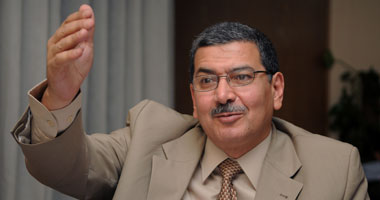A state of controversy was raised by the Egyptian government after announcing the expansion of a new kind of private universities’ establishment (civil universities) in various governorates, and the provision of the necessary financial allocations for this, despite the state treasury suffering from a lack of liquidity and imposing austerity measures. Although the authorities denied that civil universities are a prelude to cancelling free education, widespread accusations are being made against the government of privatising education and curbing the necessary capabilities for public universities in light of the current competition with other universities.
The government says that civil universities are universities that follow public universities and thus follow the Supreme Council of Universities, and are administered through a board of trustees, and are not-for-profit. Still, they are not free and with annual fees that some consider exaggerated. In addition to this is the issue of the high residency expenses, as the new universities are in uninhabited areas, far from the areas of concentration of Egyptians in the Nile Valley and Delta. Faced with the weakness of public universities, these universities may be transformed into traditional educational institutions, to which a certain class of students who are unable to pay the costs of studying at other universities will enroll, and the outstanding students will escape from them.
There are 27 public universities in Egypt, at a time when the number of civil universities increased to 32, most of them in Greater Cairo, and most of them were established in the 1990s in Sixth of October City (west of Cairo). The government decided to expand the establishment of civil universities, as it plans to complete the establishment of four universities at the cost of EGP 13 billion, namely, King Salman International University in South Sinai, al-Alamein International University in el-Alamein, Galala University in Suez, and New Mansoura University in the Delta (under construction). There are three universities ready to receive new students this year, and teaching will be done through special curricula and partnerships with foreign universities. The study includes many theoretical and scientific departments, including engineering, medicine, pharmacy, dentistry, and physical therapy disciplines.
According to the Minister of Higher Education Khaled Abdel Ghaffar, 30,000 Egyptian students have activated accounts to enroll in civil universities, and they must pass entrance exams, as the acceptable number will be much lower due to the limited capacity. In early September, al-Sisi held a meeting with the Prime Minister, Minister of Higher Education, and Head of the Engineering Authority for the Armed Forces, dealing with developments in the implementation of the establishment of 10 new civil universities at the level of the governorates of the republic, affiliated with public universities. Before that, al-Sisi directed the appropriation of about EGP 30 billion to expand the establishment of private universities affiliated with public universities by using the lands they own in the new urban communities.
Away from public and private universities, there is a segment of society that sends its children to teach abroad, and these are what al-Sisi intended in his talk about immigrant students, and he wants to spend their money on education at civil universities, which he is establishing in full swing. Thousands of financially capable and unfortunate people now have to resort to the other two options, civil or private universities, with the advantage of admission to top colleges at less than five per cent and more than public universities, and their fees range between $7,000-15,000, not including accommodation, transportation, and entertainment and scientific activities. The fees for civil universities are not less than the fees for admission to many private universities and perhaps more, as the fees in the fields of pharmacy, dentistry, and human medicine amounted to between EGP 85,000 and EGP 105,000, without the accommodation and other expenses.
It is noteworthy that the reason for sending thousands of families to study abroad is the same reason that drives them to get treatment abroad, as the most famous and oldest Egyptian universities were unable to adequately or convincingly advance the quality standards of higher education due to their low ranking. For his part, the director of the Foundation for the Right to Education, Abdel Hafiz Tayel, expressed his concern about the transformation of education into a commodity. He said, “It is assumed that there is a university for every million citizens, meaning we need 100 universities,” noting that “successive governments see that education is not a right for all Egyptians and that it is a burden on the state’s shoulders.” He stressed that civil universities, like private universities, will not be a substitute for Western universities for many scientific reasons, and the evidence for that is that they are outside the international classification of universities, which means that their goal is more profitable than educational.
Whether civil universities will solve the problem of higher education quality, Tayel stipulated the existence of curricula, methods, and educational methods that address the future. Still, the question is, do we have qualified teams to deal with the future? Is there real scientific research freedom? The educational expert Mohamed Raafat criticised the Egyptian authorities’ attempt to clearly and dangerously influence the educational system. He said that the educational field is one of the most dangerous fields in society, stressing that underdeveloped countries lose a lot despite what they claim to spend on education because they never look to investing in human capital.
On whether new private (civil) universities will be an addition to university education in Egypt, Raafat emphasised that they will compete with old private universities for profit in the name of education. Still, it is more beneficial to spend these billions to increase public universities’ numbers and develop them.





Recent Comments